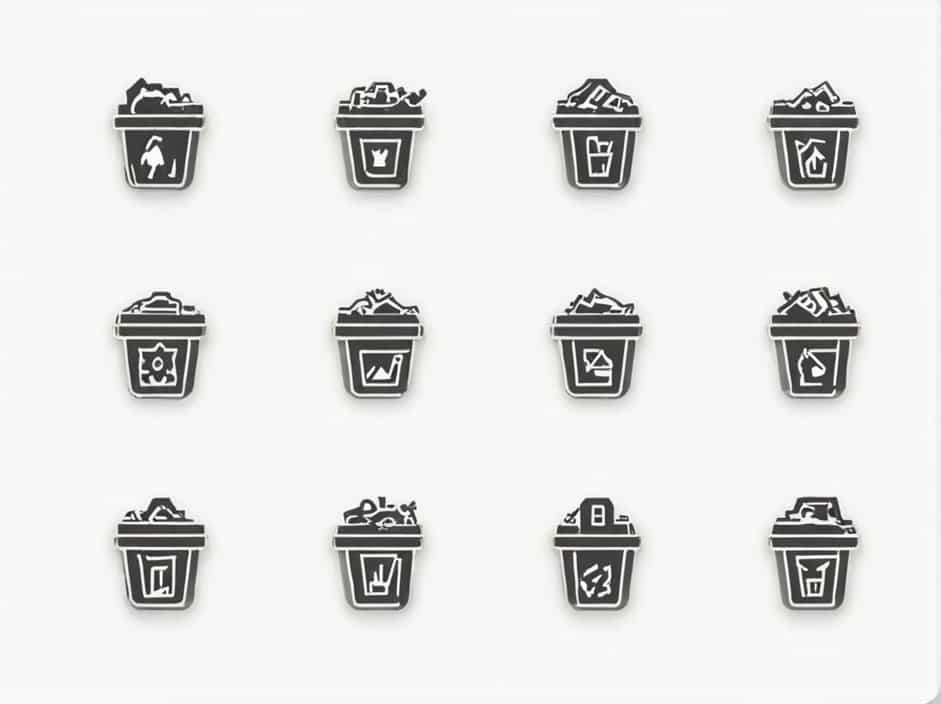Finding the nearest rubbish tip to me is essential for properly disposing of household and commercial waste. Whether you need to get rid of old furniture, garden waste, or general rubbish, visiting a local waste disposal site ensures that your waste is handled responsibly.
This guide will help you locate the nearest waste tip, understand the different types of rubbish tips, and learn about the rules for waste disposal.
How to Find the Nearest Rubbish Tip
If you’re wondering, “Where is the nearest rubbish tip?”, there are several easy ways to locate one:
1. Use a Local Government Website
Most local councils provide a waste disposal site locator on their official websites. You can search by postcode or city name to find the nearest tip.
2. Google Search
Typing ‘rubbish tip near me’ or ‘waste disposal site near me’ in Google will display a list of recycling centers and waste tips in your area. The results include:
-
Opening hours
-
Accepted waste types
-
Directions and contact details
3. Waste Management Company Websites
Private waste management companies also operate waste disposal facilities. Websites of major waste service providers often have waste tip locators to help you find the closest site.
4. Mobile Apps for Waste Disposal
Some cities have waste management apps where you can find the nearest rubbish tip, check collection schedules, and book waste pickups.
5. Call Your Local Council
If online searches don’t help, calling your local council’s waste department can provide accurate details about the nearest waste disposal site.
Types of Rubbish Tips and Waste Disposal Sites
Different types of waste tips exist depending on the kind of rubbish you need to dispose of. Knowing the right site for your waste ensures proper disposal and reduces environmental impact.
1. Household Waste Recycling Centers (HWRCs)
These are government-operated facilities where you can dispose of general household waste, electronics, and recyclable materials.
2. Landfill Sites
These are designated areas for non-recyclable waste. Most modern landfills follow strict environmental regulations to minimize pollution.
3. Green Waste Disposal Sites
If you have garden waste like leaves, branches, or grass clippings, these sites will compost the waste instead of sending it to a landfill.
4. Construction and Demolition Waste Tips
For builders and contractors, these sites accept bricks, concrete, tiles, and other construction materials.
5. Hazardous Waste Disposal Sites
Special waste tips handle chemical waste, paint, batteries, and toxic materials to prevent environmental contamination.
6. Private Waste Disposal Companies
Some private companies provide skip bin services and waste collection, allowing businesses and households to dispose of large amounts of waste easily.
What Can You Dispose of at a Rubbish Tip?
Most waste disposal sites accept a wide range of materials, but some restrictions apply. Below is a list of commonly accepted and restricted waste items.
✅ Accepted Waste
-
Household general waste
-
Furniture and bulky items
-
Cardboard, paper, and plastics (for recycling)
-
Metal waste and scrap
-
Garden waste (leaves, branches, soil)
-
Appliances and electronics (some locations)
❌ Restricted Waste
-
Hazardous materials (chemicals, paint, solvents)
-
Medical waste
-
Asbestos
-
Commercial or industrial waste (unless permitted)
-
Gas bottles and flammable materials
Always check the waste tip rules before visiting to avoid fines or rejection of your waste.
Rubbish Tip Opening Hours and Fees
Opening Hours
Most rubbish tips operate during standard business hours:
-
Monday to Saturday: 8:00 AM – 5:00 PM
-
Sunday & Public Holidays: 9:00 AM – 4:00 PM
Some sites have extended hours or 24/7 drop-off points for specific waste types like recyclables.
Disposal Fees
Many council-operated waste tips are free for residential waste. However, some waste types require a small fee, including:
-
Construction debris
-
Large furniture disposal
-
Non-recyclable materials
Private waste disposal sites typically charge by weight or volume.
Tips for Visiting a Rubbish Tip
To make your waste disposal trip smooth and hassle-free, follow these tips:
1. Check What Waste is Accepted
Each waste tip has specific rules about what they accept. Checking beforehand will save time.
2. Sort Your Waste Before Arrival
Separate recyclables, general waste, and green waste to make unloading faster.
3. Bring Proof of Residency
Some council waste tips require a proof of address (like a utility bill) to access free services.
4. Wear Protective Gear
Wear gloves and sturdy shoes to prevent injury while handling waste.
5. Follow Safety Rules
Many waste sites have speed limits and safety zones to ensure safe disposal.
Alternatives to Visiting a Rubbish Tip
If you cannot visit a waste disposal site, consider these alternatives:
1. Council Waste Collection Services
Many councils provide bulk waste collection for large items like sofas and mattresses.
2. Private Waste Removal Services
Companies offer skip bin hire and doorstep waste collection.
3. Recycling Programs
Retailers and local organizations often have drop-off points for electronics, batteries, and plastics.
Finding the nearest rubbish tip to me is easy with online resources, mobile apps, and local government websites. By choosing the right waste disposal site, following waste segregation rules, and exploring alternative waste management options, you can contribute to a cleaner environment and ensure responsible waste disposal.
